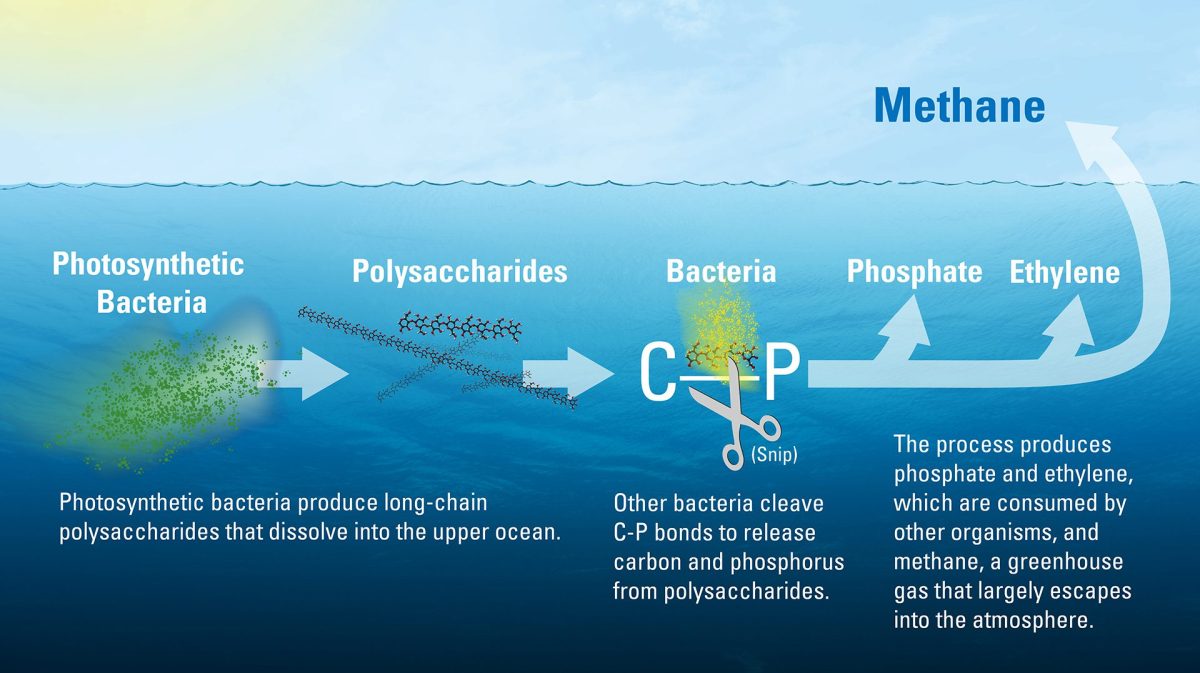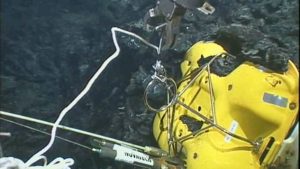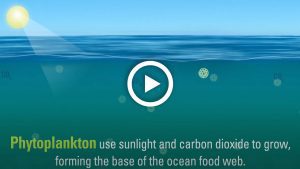An enduring ocean mystery may finally be solved. For decades, scientists have known that the oceans surface waters are full of methane gas. But they didn’t know where it came from, because most of the microbes that make methane cant survive in oxygen-rich surface waters. New research led by WHOI geochemist Dan Repeta may have found the answer. The study showed that photosynthetic bacteria in the upper ocean make chains of sugars called polysaccharides, while different bacteria snip apart those chains, releasing methane and other gases as byproducts. These findings reveal a previously-unknown microbial source of methane, a powerful greenhouse gas.
(Illustration by Eric S. Taylor, © Woods Hole Oceanographic Institution)
Image and Visual Licensing
WHOI copyright digital assets (stills and video) on this website can be licensed for non-commercial use upon request and approval. Please submit your request via our Media Request Form.
For assistance or accessibility accommodations, call (508) 289-2647.








